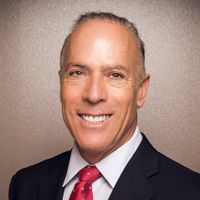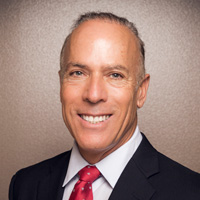4 Simple Steps to Help Protect Against Identity Theft
Taking a few proactive measures now can potentially save you from a lot of headaches later.


Profit and prosper with the best of Kiplinger's advice on investing, taxes, retirement, personal finance and much more. Delivered daily. Enter your email in the box and click Sign Me Up.
You are now subscribed
Your newsletter sign-up was successful
Want to add more newsletters?

Delivered daily
Kiplinger Today
Profit and prosper with the best of Kiplinger's advice on investing, taxes, retirement, personal finance and much more delivered daily. Smart money moves start here.

Sent five days a week
Kiplinger A Step Ahead
Get practical help to make better financial decisions in your everyday life, from spending to savings on top deals.

Delivered daily
Kiplinger Closing Bell
Get today's biggest financial and investing headlines delivered to your inbox every day the U.S. stock market is open.

Sent twice a week
Kiplinger Adviser Intel
Financial pros across the country share best practices and fresh tactics to preserve and grow your wealth.

Delivered weekly
Kiplinger Tax Tips
Trim your federal and state tax bills with practical tax-planning and tax-cutting strategies.

Sent twice a week
Kiplinger Retirement Tips
Your twice-a-week guide to planning and enjoying a financially secure and richly rewarding retirement

Sent bimonthly.
Kiplinger Adviser Angle
Insights for advisers, wealth managers and other financial professionals.

Sent twice a week
Kiplinger Investing Weekly
Your twice-a-week roundup of promising stocks, funds, companies and industries you should consider, ones you should avoid, and why.

Sent weekly for six weeks
Kiplinger Invest for Retirement
Your step-by-step six-part series on how to invest for retirement, from devising a successful strategy to exactly which investments to choose.
Since the advent of the internet and the ability to do all of our shopping online, identity theft has become an ever-increasing problem.
For example, you may recall the immense news coverage last year when Equifax, one of the three big credit-reporting agencies, publicly announced that its information was compromised, exposing an estimated 148 million Americans to the serious threat of identity theft.
With or without such major breaches, I have always felt it is extremely important to do everything we can to keep our private information secure. Let’s take a look at what you can do to help protect your identity and what you should do when something like the Equifax breach happens.
From just $107.88 $24.99 for Kiplinger Personal Finance
Become a smarter, better informed investor. Subscribe from just $107.88 $24.99, plus get up to 4 Special Issues

Sign up for Kiplinger’s Free Newsletters
Profit and prosper with the best of expert advice on investing, taxes, retirement, personal finance and more - straight to your e-mail.
Profit and prosper with the best of expert advice - straight to your e-mail.
Step 1: Freeze your credit.
A credit freeze prevents creditors from accessing your credit report. It also prevents credit loans and services from being approved in your name without your consent. A credit freeze does not affect your credit score. You can freeze your credit by going to each of the three major credit-reporting agencies — Experian, TransUnion and Equifax — and telling them you want to freeze your credit. They will allow you to create a personal identification number, and anytime you want to unfreeze your credit, you just have to provide them with that PIN. Remember to ask about any fees related to freezing or unfreezing your credit. You can freeze your credit by using the following phone numbers and websites:
- Equifax: 888-298-0045; www.freeze.equifax.com
- Experian: 888-397-3742; www.experian.com/freeze
- TransUnion: 888-909-8872; https://www.transunion.com/credit-freeze
Step 2: Review your credit reports regularly.
I review mine annually and look for any unusual items. I have found many cases in which there was an “open” account that should have been closed years ago. For example, maybe you paid off a mortgage, but the mortgage company failed to report it to all its credit-monitoring companies. You will want to get a report from all three of the major credit-reporting agencies. You have the legal right to a free credit report each year; take advantage of this.
Step 3: Consider changing your credit card number.
After a major breach, you may want to consider calling your credit card companies to get new cards sent to you with a change in your credit card number. Why? I suspect that in cases like what happened to Equifax, the hackers not only had access to Social Security numbers and dates of birth, but also to account numbers and driver’s license numbers. I personally took the time to have all my credit cards reissued and put a freeze on my credit at all three of the reporting agencies.
Step 4: Watch out for phishing and other scams.
People who steal data may sell that information to other corrupt individuals. They may try scams such as calling you and using information they already have to get you to reveal other important information. Never give out specific items like your security codes on your credit card or other personal information unless you are absolutely sure you know who you are talking to and why they are asking. The same goes for emails. If you do not recognize the sender or suspect that the email is not valid, do not open the email. By opening an attachment, you may be allowing scammers access to your computer.
Identity theft has always been a problem, but these days, it seems we need to be more vigilant than ever.
Investment Advisory Services offered through Harwood Advisory Group, a SEC Registered Investment Advisor. Insurance products and services are offered through the Hardwood Insurance Group. Harwood Advisory Group and Harwood Insurance Group do business collectively as Harwood Financial Group, DBA. The aforementioned are affiliated companies. The National Ethics Association (NEA) is a paid membership organization. All NEA Background-Checked members have successfully passed the annual seven-year background checks for criminal, civil, and business violations in order to meet the membership standards. However, the association provides no guaranteed assurance or warranty of the character or competence of its members. Always make financial decisions on the basis of your own due diligence.
Profit and prosper with the best of Kiplinger's advice on investing, taxes, retirement, personal finance and much more. Delivered daily. Enter your email in the box and click Sign Me Up.

Robert Harwood is the president and founder of Harwood Financial Group. A licensed financial and investment adviser, he is the author of "Investing for Retirement: The Ultimate Guide to Not Outliving Your Money" and a popular public speaker. Harwood served as a pilot and officer in the U.S. Air Force, and he has a degree in engineering from the University of South Florida.
-
 Dow Adds 1,206 Points to Top 50,000: Stock Market Today
Dow Adds 1,206 Points to Top 50,000: Stock Market TodayThe S&P 500 and Nasdaq also had strong finishes to a volatile week, with beaten-down tech stocks outperforming.
-
 Ask the Tax Editor: Federal Income Tax Deductions
Ask the Tax Editor: Federal Income Tax DeductionsAsk the Editor In this week's Ask the Editor Q&A, Joy Taylor answers questions on federal income tax deductions
-
 States With No-Fault Car Insurance Laws (and How No-Fault Car Insurance Works)
States With No-Fault Car Insurance Laws (and How No-Fault Car Insurance Works)A breakdown of the confusing rules around no-fault car insurance in every state where it exists.
-
 For the 2% Club, the Guardrails Approach and the 4% Rule Do Not Work: Here's What Works Instead
For the 2% Club, the Guardrails Approach and the 4% Rule Do Not Work: Here's What Works InsteadFor retirees with a pension, traditional withdrawal rules could be too restrictive. You need a tailored income plan that is much more flexible and realistic.
-
 Retiring Next Year? Now Is the Time to Start Designing What Your Retirement Will Look Like
Retiring Next Year? Now Is the Time to Start Designing What Your Retirement Will Look LikeThis is when you should be shifting your focus from growing your portfolio to designing an income and tax strategy that aligns your resources with your purpose.
-
 I'm a Financial Planner: This Layered Approach for Your Retirement Money Can Help Lower Your Stress
I'm a Financial Planner: This Layered Approach for Your Retirement Money Can Help Lower Your StressTo be confident about retirement, consider building a safety net by dividing assets into distinct layers and establishing a regular review process. Here's how.
-
 The 4 Estate Planning Documents Every High-Net-Worth Family Needs (Not Just a Will)
The 4 Estate Planning Documents Every High-Net-Worth Family Needs (Not Just a Will)The key to successful estate planning for HNW families isn't just drafting these four documents, but ensuring they're current and immediately accessible.
-
 Love and Legacy: What Couples Rarely Talk About (But Should)
Love and Legacy: What Couples Rarely Talk About (But Should)Couples who talk openly about finances, including estate planning, are more likely to head into retirement joyfully. How can you get the conversation going?
-
 How to Add a Pet Trust to Your Estate Plan: Don't Leave Your Best Friend to Chance
How to Add a Pet Trust to Your Estate Plan: Don't Leave Your Best Friend to ChanceAdding a pet trust to your estate plan can ensure your pets are properly looked after when you're no longer able to care for them. This is how to go about it.
-
 Want to Avoid Leaving Chaos in Your Wake? Don't Leave Behind an Outdated Estate Plan
Want to Avoid Leaving Chaos in Your Wake? Don't Leave Behind an Outdated Estate PlanAn outdated or incomplete estate plan could cause confusion for those handling your affairs at a difficult time. This guide highlights what to update and when.
-
 I'm a Financial Adviser: This Is Why I Became an Advocate for Fee-Only Financial Advice
I'm a Financial Adviser: This Is Why I Became an Advocate for Fee-Only Financial AdviceCan financial advisers who earn commissions on product sales give clients the best advice? For one professional, changing track was the clear choice.